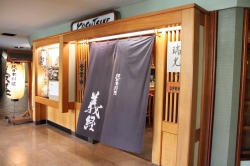Info Type
View Option
Sort by Category
Show all from recent
| 1. | I received an email from Bank of Mitsubishi UFJ re...(213view/5res) | Problem / Need advice | Yesterday 21:29 |
|---|---|---|---|
| 2. | Dual nationality passport expired(80view/1res) | Question | Yesterday 16:29 |
| 3. | Remittance from Japan to Hawaii(378view/3res) | Question | 2024/12/09 08:59 |
| 4. | ASAP ! Please tell me where I can change the batte...(257view/4res) | Problem / Need advice | 2024/12/08 21:21 |
| 5. | Taking Long Leave for Part-Time Employees(332view/4res) | Problem / Need advice | 2024/12/08 10:01 |
| 6. | Places for a 5 year old Japanese boy to have fun i...(273view/2res) | Question | 2024/12/06 15:58 |
| 7. | Venmo and paypal(345view/4res) | Question | 2024/12/06 15:13 |
| 8. | Where is the best place to change the oil in my ca...(583view/3res) | Question | 2024/12/03 23:16 |
| 9. | Personal information required at the time of viewi...(432view/5res) | Question | 2024/12/03 12:17 |
| 10. | Post-divorce health insurance(673view/3res) | Question | 2024/12/03 09:06 |
Income on a student visa
- #1
-
- Aya
- 2022/11/15 22:03
I would like to know if anyone can elaborate on this. I was aware that if you are in the US on a student visa, you are not allowed to earn income in any case, but I recently heard that it is not illegal to work while in the US as long as you are a customer living in Japan and your salary is paid to a Japanese account, such as online work. Which is correct? ?
I would like to know if anyone knows the income from YouTube and social networking sites as well.This text has been translated by auto-translation. There may be a slight difference between the original text and the translation. (Original Language: 日本語)
- #2
-
- こーの字
- 2022/11/16 (Wed) 09:20
- Report
I found a lot of information by looking up the keywords f-1 visa student youtube income or f-1 visa student remote work income at foreign contoury,
the answer is generally no.
I checked previously for H-4 visas, which are basically not allowed to work, and it seems that even if income from online work, etc. comes into a Japanese account, it is still treated as work in the US for the period you are physically present in the US.
I'm not convinced, though, because it would be a departure from the basic premise of not depriving Americans of employment opportunities.This text has been translated by auto-translation. There may be a slight difference between the original text and the translation. (Original Language: 日本語)
- #3
-
I think
you first need to understandthe point regarding F-1Student VISA employment ( work for income ).
Below is the explanation of the rule. I have also attached a translation.
F-1 Employment Options (On Campus, CPT, OPT)
Students on F-1 visas must understand the rules of their visa status before engaging in employment or work opportunities in the U.S.Students on F-1 visas must understand the rules of their visa status before engaging in employment or work opportunities in the U.S.
Employment is defined as "work performed in exchange for Compensation can include money, room and board,
or other significant benefits.
Working without authorization has serious consequences and can impact your ability to study, travel, or work in the U.S. throughout your life.
{ F-1 Employment Options (On-Campus, CPT, OPT)
Students with F-1 visas should understand the rules of their visa status before engaging in employment or work opportunities in the United States. They are required to do so.
Employment is defined as "work performed in exchange for remuneration. Compensation may include money, room and board, or other significant perks.
Most employment opportunities require a permit. Working without a permit has serious consequences and can affect your ability to study, travel, or work in the United States throughout your life. )
Without reading the explanation, it is common sense to understand that you cannot work
without permission at a so-called income-earning job on a student visa.
It is in your question.
{ I recently heard that it is not illegal to work in the US if you are a customer living in Japan
and your salary is paid to a Japanese account, which is correct ?? }
When you earn income, you are required to pay income tax.
Whether you are doing this in Japan or doing business from the US, you will have to pay
"income tax" when income is generated.
You will have to pay "income tax".
If you are on an F visa, you do not have Social Security to work in the U.S.
so you cannot pay income tax
in the form of a tax return.
In addition, there are two legal issues that arise
when you perform goods or services from the U.S. and deposit the payment
into your Japanese account.
1. ) If the payment is made to an account in Japan, the income is earned in Japan, so
you must file a Japanese income tax return as a resident of Japan.
Since a person in the U.S. will be working in Japan and reporting income in Japan,
I don't think it is physically possible.
For example, an American ( who does not live in Japan ) would ship goods from the US and
receive payment for them in a Japanese bank account.
Since he is an American, he cannot declare his income in Japan, which is a violation of the Income Tax Law.
2 ) In the case of goods or services from the U.S., it is against the law to pay for goods to a country other than the country from which the goods were shipped because of the
balance of payments relationship between the U.S. and Japan.
In other words, both Japan and the U.S. are required to make payment to the country to which the goods were sent.
If you send $100 worth of goods or services from the U.S.,
you must pay the U.S. $100 or your balance of payments will not be met.
In the case of business between foreign countries, not only the payment between individuals, but also the
balance of payments between the two countries must match.
To make a long story short, it is illegal to receive payment for services or goods from the U.S. to an account in Japan
and not only for F visas but also for U.S. citizens
. This kind of activity is illegal ( and is being enforced
between the U.S. and Japan as money launderingand illegal ). This text has been translated by auto-translation. There may be a slight difference between the original text and the translation. (Original Language: 日本語)
Posting period for “ 学生ビザでの収入について ” has been closed.
Please create new topic to continue the same topic.
- Find local business with Town Guide
-
- And You Creations is a local tour compan...

-
AYC is an expert on the best ways to enjoy the island of Oahu. We have been serving Japanese customers since 1989, so we are familiar with the needs and concerns of our Japanese customers. Please feel...
+1 (808) 696-4414And You Creations
-
- Online Assistant/Emily., which specializ...

-
Emily. is a US based Japanese ・ English speaking online assistant service. We can assist you with a wide range of tasks from daily operations to specialized fields on your behalf.
+1 (310) 347-8750COEL
-
- We offer a wide range of services from c...

-
Born in Tokyo, Japan. Graduated from Michigan State University with a degree in Medical Psychology. After working in Japan at the headquarters of Mitsui & Co. and in the U.S. at General Motors, Nissan...
+1 (808) 591-2002Moana Realty LLC
-
- Enjoy authentic Japanese cuisine in a re...

-
Always highly rated by YELP. We strive to provide a variety of meals with carefully selected ingredients and a rich menu so that everyone from children to the elderly can dine with ease. A full dinin...
+1 (808) 926-5616義経レストラン| YOSHITSUNE - Park Shore Hotel
-
- We are a licensed Hawaii Real Estate Bro...

-
We are a licensed Hawaii Real Estate Broker ・ and handle the buying and selling of real estate in the state of Hawaii, including ・ life insurance ( annuities ) ・ long-term care insurance, 401K, IRA ro...
+1 (808) 387-1148ヒラタ ・コンサルティング
-
- Cafe ! offers a very popular deli bento ...

-
Cafe ! Delicatessen lunch boxes made with fresh vegetables from Hawaii are very popular
We use a lot of vegetables grown in Hawaii and offer delicious dishes freshly prepared every day. Vegan... +1 (808) 737-2840KAIMANA FARM CAFE
-
- Dean & DeLuca Hawaii is a food boutique ...

-
DEAN&DELUCA is your source for gourmet foods from all over the world. We offer a variety of products that utilize the freshest local ingredients to help customers rediscover the deliciousness of Hawai...
+1 (808) 729-9720DEAN & DELUCA HAWAII
-
- If you are looking for a job in Hawaii, ...

-
Fellows, a human resources agency with 14 offices in Japan and Singapore, has opened a new office in Hawaii. Sales Representative : Oyama 808-268-7003 ( Please speak Japanese ) Please contact us at...
+1 (808) 268-7003フェローズハワイ(正社員・派遣社員のご紹介)
-
- Your trip to Hawaii will be many times m...

-
We, Hawaiian Tours, are here to help make your Hawaii trip the most memorable one yet. [Airport Transfer] We will pick you up at the airport in your own private car. [Private Charter] Japanese dr...
+1 (808) 308-2700Yoshi Hawaiian Tours
-
- 0 minutes waiting time ! Car rental in H...

-
0 minutes waiting time ! Car rental in Hawaii run by Japanese. We will come to the designated location at the designated time for return, so no extra time is required. To ensure that everyone has a pl...
+1 (808) 253-1344STAR Rent A Car / スターレンタカー
-
- Welcome to St. Luke's Clinic. The clinic...

-
This clinic is located near the Ala Moana Shopping Center for Japanese residents. Medical examinations are available in both Japanese and English, so Japanese who are traveling to Hawaii or residing i...
+1 (808) 945-3719St. Luke's Clinic
-
- We are the first store in Japan speciali...

-
We are the first store in Japan specializing in fresh cream. With the support of Takanashi Dairy Industry, we are proud of our amazingly rich fresh cream. We offer milky soft ice cream and other sweet...
+1 (808) 376-0435MILK
-
- ★ January 2025 Students & April Students...

-
The school has been recognized by the State of Hawaii for over 50 years and has produced many graduates. Many of our graduates are active in Hawaii, Japan and other foreign countries. ! We offer massa...
+1 (808) 367-7777ハワイマッサージアカデミー
-
- Japanese Cleaning Company, Hawaii ・ Grow...

-
・ Careful cleaning: We pay close attention to detail and leave your home or office sparkling clean. ・ Tailored service: From regular cleaning to thorough cleaning, we offer services to meet your need...
+1 (646) 846-8068Lauri's Cleaning LLC
-
- Cafe & Bar where bagel sandwiches and or...

-
Cafe & Bar where bagel sandwiches and original coffee are popular, and where you can also drink alcohol at night. Japanese staff is always available, so you don't have to worry even if you are not con...
+1 (808) 492-1470KAKAAKO CAFE

